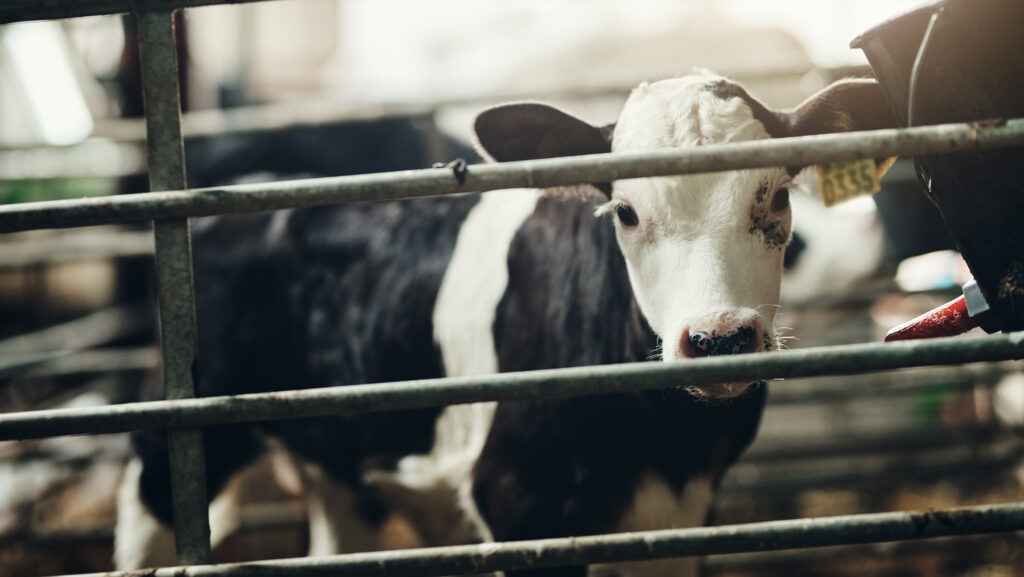Cryptosporidiosis impacts four in five dairies, study finds
 © AdobeStock
© AdobeStock A recent study has highlighted that four in five dairy farms have experienced cryptosporidiosis in their herds, which has had significant financial and welfare implications.
The study investigated the effects of cryptosporidium on UK dairy calves and the strategies farmers use to reduce prevalence.
It included 63 farmers from across the UK and was conducted at Harper Adams University by BSc Animal Production Science graduate Alice Powell.
See also: Two drugs impress in calf cryptosporidiosis trial
Cryptosporidiosis occurs when calves ingest the parasitic protozoan Cryptosporidium parvum, which produces vast numbers of encysted eggs (oocysts) shed in the faeces of infected animals.
Calves between five days and two weeks of age are most affected, with symptoms including colic (gut pain), reduced feed intake, watery scour, and dehydration.
Ms Powell found that 84% of surveyed farmers had dealt with cryptosporidiosis outbreaks, with nearly 60% rating the severity as seven or higher, with 10 being the most severe.
Financial implications
More than two-thirds (68%) of respondents also cited financial strain due to increased vet bills, extended rearing times, and lower sale values.
These financial losses ranged from £300 to £30,000 an incident.
Almost three-quarters (70%) of respondents also said affected calves were less profitable, with poor growth rates being the most common reason.
MSD Animal Health veterinary adviser Dr Kat Baxter-Smith said there is no single solution to managing infectious calf scour “but good biosecurity, vaccination, nutrition, and hygiene help minimise disease problems”.
Biosecurity
Ms Powell’s study, however, also revealed that there were gaps in biosecurity and prevention measures.
Farmers were found to be unaware that only certain disinfectants are effective against cryptosporidiosis.
More than half of respondents were using preventive measures, with cleaning equipment, good colostrum management, and correct calving protocols ranked as the most effective.
Human transmission of Cryptosporidium parvum
Humans can become infected with Cryptosporidium parvum as well, as evidenced by the recent hospitalisation of 16 people in Wales, with a further 74 people becoming unwell.
It is suspected that the infections are linked with visits to Cowbridge Farm Shop at Marlborough Grange Farm, in the Vale of Glamorgan.
The Animal and Plant Health Agency highlights that infections occur via the faecal-oral route and can take place via contaminated water or through direct contact (for example, petting) or indirect contact (such as contact with animal faeces) with infected animals.
Public Health Wales is advising people who have visited the farm and feel unwell to contact their GP or call NHS 111.
Those visitors who participated in the calf and lamb feeding sessions are advised to let their GP know that they have visited the site or call NHS 111.
The main symptoms of cryptosporidium infections in humans include:
- Watery diarrhoea
- Stomach pains or cramps
- Nausea or vomiting
- Mild fever
- Loss of appetite
- Weight loss
Symptoms usually start two to 10 days after contact with the parasite and can last for up to two weeks.
